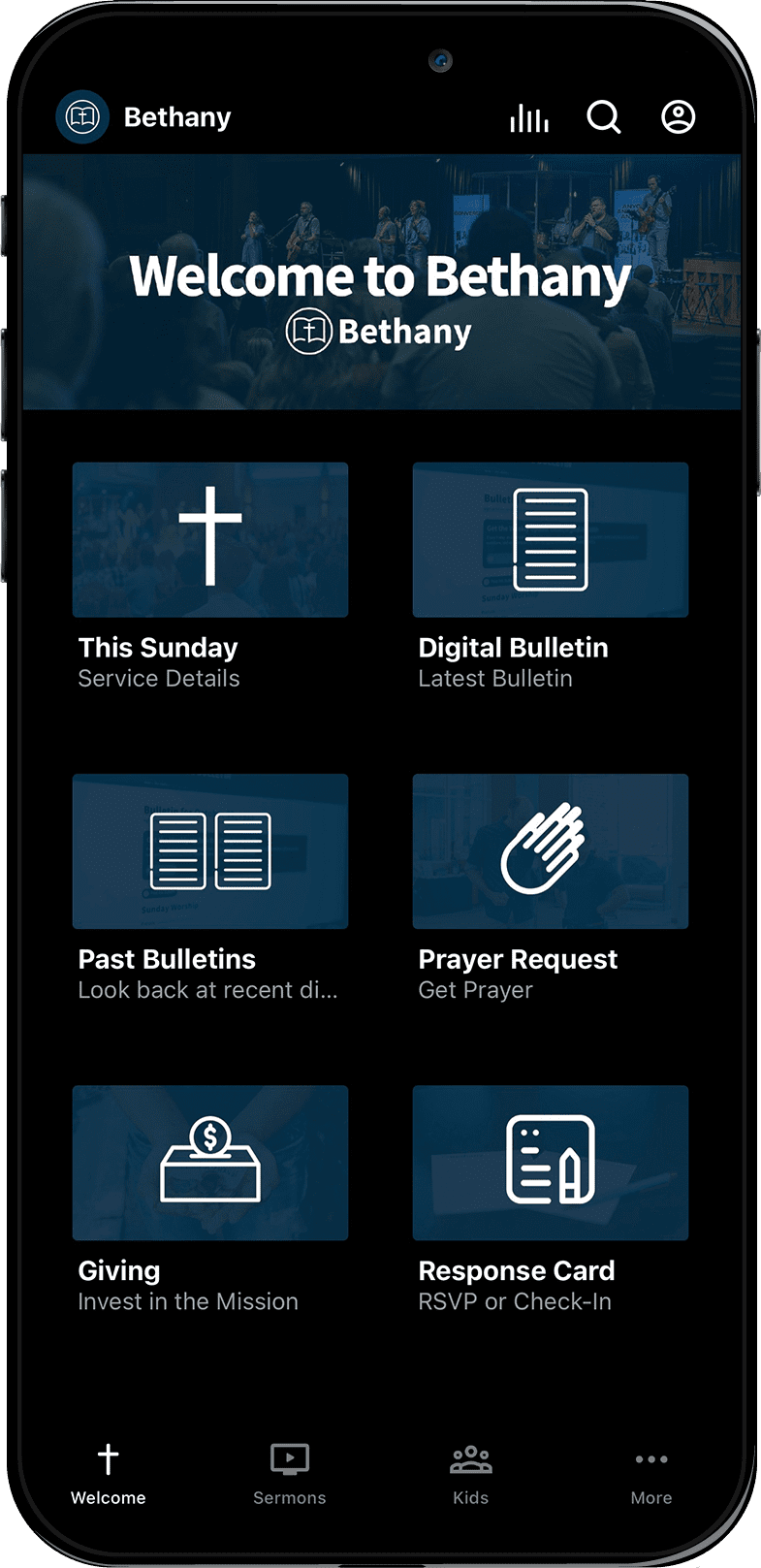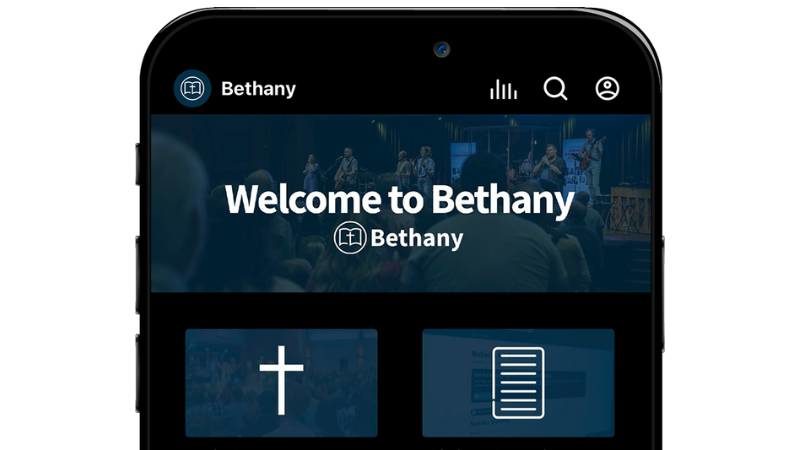In This Series
The Fruit of Rejection for Christ
Acts 4:13-37 (ESV)
February 21, 2021
Dr. Ritch Boerckel
We’re going to be in Acts chapter 4. Last week we saw the beginning of the persecution of the church as Peter and John, in Jesus’ name, were used to heal this lame man. Then that set the stage for a sermon, a proclamation of Christ. Then that brought the religious leaders together in great concern and actually anger. So we find the rest of the story of this rejection of the gospel, of the affliction upon those who would proclaim Jesus. So we’re going to be looking at Acts 4. I’m going to begin reading verse 13 through 31.
13 Now when they saw the boldness of Peter and John, and perceived that they were uneducated, common men, they were astonished. And they recognized that they had been with Jesus. 14 But seeing the man who was healed standing beside them, they had nothing to say in opposition. 15 But when they had commanded them to leave the council, they conferred with one another, 16 saying, “What shall we do with these men? For that a notable sign has been performed through them is evident to all the inhabitants of Jerusalem, and we cannot deny it. 17 But in order that it may spread no further among the people, let us warn them to speak no more to anyone in this name.” 18 So they called them and charged them not to speak or teach at all in the name of Jesus. 19 But Peter and John answered them, “Whether it is right in the sight of God to listen to you rather than to God, you must judge, 20 for we cannot but speak of what we have seen and heard.” 21 And when they had further threatened them, they let them go, finding no way to punish them, because of the people, for all were praising God for what had happened. 22 For the man on whom this sign of healing was performed was more than forty years old.
23 When they were released, they went to their friends and reported what the chief priests and the elders had said to them. 24 And when they heard it, they lifted their voices together to God and said, “Sovereign Lord, who made the heaven and the earth and the sea and everything in them, 25 who through the mouth of our father David, your servant, said by the Holy Spirit, “‘Why did the Gentiles rage, and the peoples plot in vain? 26 The kings of the earth set themselves, and the rulers were gathered together, against the Lord and against his Anointed’—27 for truly in this city there were gathered together against your holy servant Jesus, whom you anointed, both Herod and Pontius Pilate, along with the Gentiles and the peoples of Israel, 28 to do whatever your hand and your plan had predestined to take place. 29 And now, Lord, look upon their threats and grant to your servants to continue to speak your word with all boldness, 30 while you stretch out your hand to heal, and signs and wonders are performed through the name of your holy servant Jesus.” 31 And when they had prayed, the place in which they were gathered together was shaken, and they were all filled with the Holy Spirit and continued to speak the word of God with boldness.
May God encourage us today!
Many crops grow best in areas of rich soil and abundant rainfall and humidly warm temperatures. Living in the Midwest for most of my life, I admire and esteem the farmer whom God uses to produce an abundance of corn and beans that ultimately feeds the world. Year by year God shows His mercy and His faithfulness by bringing rains to give life to these plants that need plenty of water to thrive. Yet there are some crops that grow best in a dry, sandy desert environment.
My wife’s grandparents lived in Palm Desert and as a young married couple we visited them at their home in the warmth of the desert sun. I still remember Grandpa Wilcox asking us if we would like to have a date shake. I didn’t know what he was talking about at the time. I grew up in the Midwest and hadn’t traveled much. I hadn’t even heard of a date shake. He took us to a place where they had these date palm trees. They were selling all kinds of sweet treats made from these dates. These palm trees lifted their heads high in the sky, and as you looked up, you could see these bunches of dates just hanging from the tops of those trees. I marveled that such sweet fruit could grow in such a place, such a dry, arid desert. Date palms don’t grow in the Midwest. It gets too cold in the winter. It’s too wet in the spring. Our rich soil is too acidic for these alkaline loving plants. The principle that I want to bring to us this morning is that the Lord designs some fruit to grow best in the desert.
Today, we open up our Bibles to Acts 4 and we’re reminded that to join hands with Jesus is to part ways with the world. The offense of the Gospel translates into the rejection from those who don’t believe it. Peter and John are simply declaring the truth of Jesus’ death and the truth of His resurrection, and what results? Well, they are arrested. They are tried. They spend a night in jail. Then in the morning, they are warned not to speak in Jesus’ name any longer, or else. The persecution of Jesus’ church begins in Acts 4 and it’s going to continue all the way until Jesus returns and establishes His throne and His kingdom here on earth. Jesus said this to His disciples before He left.
John 15:18-19 “If the world hates you, know that it has hated me before it hated you. If you were of the world, the world would love you as its own; but because you are not of the world, but I chose you out of the world, therefore the world hates you.
Peter understands this first through the teaching of Jesus and the example of Jesus, but ultimately from his own experience. When Peter writes a letter, he writes his letter to encourage believers who are suffering for the sake of Jesus. Peter does not write as a scholar removed from the realities of rejection, but he writes to this group of believers, suffering believers, as a fellow sufferer. Peter knows that God has born fruit in his own life that wouldn’t have grown in his heart had he not experienced the rejection of the world. So Peter writes this in 1 Peter,
1 Peter 1:6-7 In this you rejoice, though now for a little while, if necessary, you have been grieved by various trials, so that the tested genuineness of your faith—more precious than gold that perishes though it is tested by fire—may be found to result in praise and glory and honor at the revelation of Jesus Christ.
He says we actually rejoice when we experience affliction for the name of Jesus because God is doing something in our life. He’s fashioning a fruit in our own souls that wouldn’t be there. It’s a precious fruit. It’s the fruit of faith. The central idea we’re going to trace through Acts 4 is that God uses the hardship of rejection to conform us into the image of His Son. This is His means. This is His method. And this is His ultimate purpose.
We’re going to discover through Acts 4 three specific spiritual fruits that grow best in the desert. These are fruits that God grows in our soul through the sting of rejection as we proclaim Jesus. As we value the sweetness of the fruit of the conformity to the image of Christ, we find that we actually can rejoice even in these really unpleasant, grievous and painful things that we may experience as a result of our allegiance to Jesus. The first fruit that we’re going to talk about this morning that is grown best in the desert is
Fruit #1: Boldness in sharing the Message
When we’re in the desert of affliction or of rejection, we find boldness growing more and more. There is boldness to share the message of Jesus, boldness to proclaim His name. We’re going to see that here in the lives of Peter and John. Through the power of the Holy Spirit, Peter has already received boldness. In that boldness, in verse 12, he says this.
Acts 4:12 And there is salvation in no one else, for there is no other name under heaven given among men by which we must be saved.
The religious leaders are listening and you can imagine their arms are crossed, their face is curled into a frown and their feet perhaps are tapping. They’re waiting to jump. They’re waiting for the point where they could step in and oppose Peter and John. The text tells us
13 Now when they saw the boldness of Peter and John,
People recognize boldness. They take note of boldness. People take note of boldness almost in any sphere. A person might be bold with political opinions. Do you know any of those? Everyone takes notice. Oh, they have some really strong political opinions. A person might have boldness in regard to their favorite sports team. Do you notice any of those? If you do, you know that person is really bold for this team. A person might be bold about the achievements or accomplishments of their children. When you’re around them, you’re going to hear some things that their children have done in life that is really impressive. People take note of boldness. As a follower of Jesus Christ, God calls us to be bold for Jesus. And when we are, others will notice. They certainly noticed Peter and John.
Why were Peter and John so bold for Jesus? A number of factors stirred up boldness for Jesus even though their hearts are weak. They knew that Jesus loved them. They’ve experienced His love for three years. They experienced His grace, His transformation in their own lives. They were thankful to Him for the many ways that He served them through teaching and through miracles and through provision, through encouragement, even through warnings, and even through confrontation. Yet these were not enough to stir up boldness in their hearts. We know that because boldness was not present the night Jesus was crucified.
They had already experienced Jesus’ love. They had already experienced transforming grace. They had already experienced His goodness. Yet, on the night in which Jesus was betrayed, the day that Jesus was crucified, Peter in particular, his heart melted like water in front of a little servant girl. He had no boldness. He had no courage to stand up against the intimidation of a 12 year old servant. So what factor brought such boldness in Acts 4? Well, it’s the factor of the Holy Spirit. His presence made all the difference. Remember on the day of Pentecost, the Holy Spirit filled Peter and John’s souls and it’s that day that boldness sprouted and grew and flourished. If you skip down to verse 21, we read a bit of this boldness that flows through them in the face of strong opposition from the religious leaders.
21 And when they had further threatened them,
The religious leaders continued to utter threats. They know that these are not idle threats because just a couple months earlier, they had seen these same men threaten Jesus and then ultimately have influence with Rome to have Jesus crucified on a cross. So these are folks that you didn’t mess with or there was going to be consequences. It’s these folks that are threatening Peter and John. They threaten them and
they let them go, finding no way to punish them, because of the people, for all were praising God for what had happened.
These religious leaders were intimidated by the crowds because everyone was seeing this person who had been lame from birth, forty years. They knew who he was. They knew his story, and he was leaping around, worshiping God and praising Him in the temple. They also then were praising God along with him. Boldness for Christ always characterizes the person who is filled with the Holy Spirit. Wherever you see a person filled with the Holy Spirit, you’re going to see a bold man, a bold woman.
This term “boldness” appears two more times at the end of this chapter. This is when Peter and John’s friends gathered around for prayer and now they’re praying here in verse 29.
29 And now, Lord, look upon their threats
He’s speaking of the threats. They’re taking these threats seriously. “Lord, you look upon their threats.”
and grant to your servants to continue to speak your word with all boldness,
It’s interesting! They weren’t praying so much even for protection at this point, although I’m sure that they prayed for protection. Praying for protection is good. But the main thing is, don’t let these threats influence these two godly men. “Lord, even though they’re threatened, keep them bold. Don’t let them back away. Don’t let them sort of crawl back into a corner, away from a bold proclamation of Jesus.” It goes on to say
30 while you stretch out your hand to heal, and signs and wonders are performed through the name of your holy servant Jesus.” 31 And when they had prayed, the place in which they were gathered together was shaken,
And what happened?
and they were all filled with the Holy Spirit
And what ensued?
and continued to speak the word of God with boldness.
God is answering their prayers. It is true that the Holy Spirit is a gentle Spirit. But the Holy Spirit is also a bold Spirit. Gentleness and boldness are not in contradiction. The Holy Spirit’s focus and His ministry on earth is best summarized in Jesus’ teaching in John 16. Jesus told His disciples
John 16:14 He [the Holy Spirit] will glorify me, for he will take what is mine and declare it to you.
The Holy Spirit will have a passion for Jesus’ name. The Holy Spirit is most bold about lifting up the name of Jesus. Wherever the Holy Spirit fills a person, that mission of the Holy Spirit to glorify Jesus fills that person with a passion, with a purpose, but also with confidence and boldness to proclaim Christ. When the Holy Spirit fills a person that person begins to speak boldly on behalf of Jesus.
Perhaps you have often been disappointed in your lack of boldness for Jesus Christ. You may be asking the question, “How can I become more bold for Jesus? I want to be. I love Jesus. It seems that when I get into those circumstances where there is intimidation and pressure from the world, I back away. How can I be more bold? The answer is we must be filled with the Holy Spirit. That is, we first must place our life every day under the control of God’s Spirit. We must call upon God and say, “Lord, I don’t want to live my life my way. I desire for the Holy Spirit to control, to operate, to guide, to lead in my thinking, in my words, in my actions, in every way. I want my life to be used for you and your glory and I need your Holy Spirit to be present and to be active in directing me, in leading me, indeed, even in controlling me.” Being filled with the Spirit simply requires a believer’s conscious, humble presentation of all of ourselves as an offering of sacrifice to God. And then we know that God will grant His Spirit to us in a fullness. Look at verse 14 and following.
14 But seeing the man who was healed standing beside them, they had nothing to say in opposition. 15 But when they had commanded them
This is the religious leaders. They had commanded Peter and John
to leave the council, they conferred with one another, 16 saying, “What shall we do with these men? For that a notable sign has been performed through them is evident to all the inhabitants of Jerusalem, and we cannot deny it. 17 But in order that it
That is, the name of Jesus.
may spread no further among the people, let us warn them to speak no more to anyone in this name.”
Let’s bring the heat!
18 So they called them and charged them not to speak or teach at all in the name of Jesus.
Again, Peter and John are weak human beings. I’m sure that they had some human emotions rolling through them as they heard these threats, as they heard this charge. “You must not speak any more at all to anyone in this name.” And undoubtedly their thoughts would have gone back to the crucifixion. This was the crucifixion that these guys had influenced to bring Rome to place upon Jesus. What would you do when you’re threatened by such a group? In weakness, we’re going to cower. In weakness, left to ourselves, we’d back away. Look at what Peter and John did as a result of the filling of the Holy Spirit.
19 But Peter and John answered them, “Whether it is right in the sight of God to listen to you rather than to God, you must judge,
That’s pretty bold. He says, “I don’t know. Listen to you or listen to God; you have to judge that. But here’s the deal.”
20 for we cannot but speak of what we have seen and heard.”
“We cannot do anything other than speak in the name of Jesus.”
Here’s the principle I want to bring to bear through this passage. Rejection doesn’t stifle boldness, but stimulates boldness. You see, the religious leaders thought “if we brought enough warning, enough threat, enough intimidation against these guys, the boldness that they had would completely dissipate. It would just simply rush out of their souls. So let’s bring the heat!” When they brought the heat, rather than causing boldness to diminish, it only caused their boldness to be inflamed because boldness best grows in the heat of the desert of rejection. When we experience the rejection of the world as we’re being bold, what we discover is that God is sufficient and God is glorious and we want to be more bold because we recognize that we’re living for eternity and not for time. I know that might sound counterintuitive, but when we are rejected for Christ we discover two things. First, we discover that God draws near to us in the midst of our suffering. Secondly, we see more how valuable Jesus is and how worthy He is to be proclaimed.
Let’s ask a question. How am I on the boldness scale? Where am I? On a scale of 1-10, where is my boldness for Jesus; naming Him, glorifying Him, speaking of Him specifically? In answer to this, someone might say, “I kind of have a shy personality. I’m quite reserved. Because of my personality, I’m not sure if I can be bold for Jesus.” It is true that there are some personalities that are naturally bold. Beloved, God does not call us to change our personality in order to be bold. God created you with the personality He has given you. Boldness may look very different in the life of a person who is naturally quiet and shy. But boldness is a spiritual quality, not a personality trait. Boldness simply calls us to speak Jesus’ name to people with whom we have conversation. Boldness simply calls us to give Jesus credit for all the good blessings He brings into our lives. Boldness simply calls us to share with others that salvation is found in no other name under heaven, other than the name of Jesus. Boldness simply calls us to speak in favor of Him, especially in places where Jesus is denied.
My professor Howard Hendricks used to ask us, “If Christianity were a crime, would there be enough evidence to convict you?” That’s a convicting question! Imagine that in the United States tomorrow, believing in Jesus is a crime and the District Attorney calls us to stand in court. What witnesses would he bring to bear against you to say, “Yes, I was in the neighborhood and this person talked to me about Jesus. I was at work and this person stood up for Jesus. Yes, I’m in this family and when I’m at family gatherings, this is what this person says. This is what this person does.” Would there be enough evidence to convict us by people who are not part of Jesus’ family? That’s a convicting question.
The fear of man drives many believers to keep our faith in Jesus so private that few see any connection between us and Jesus. Yet the Gospel of Jesus calls us to be very public about our love for Him, our loyalty to Him. God does not have a “secret service” in which we can enlist. The message we know is the message other people need. If we love them and if we love God, we will be public in our love for Christ.
Acts 4:12 And there is salvation in no one else, for there is no other name under heaven given among men by which we must be saved.”
Friends, as our world moves farther from God, we will be placed more and more in circumstances where we will have to make choices. Will I be intimidated and backed away and silenced, or will I press in, stand firm, and speak on behalf of Jesus to represent Him?
18 So they called them and charged them not to speak or teach at all in the name of Jesus.
If you believe in Jesus and follow Him, the world will ask you on many occasions not to speak in Jesus’ name. Sometimes it will be just outright; other times, it will be more subtle. As a pastor, I have often been asked to speak at various gatherings; sometimes governmental meetings, sometimes community gatherings. On one occasion, they actually, right before I was to pray, they gave me a paper and on that paper it said do not pray in Jesus’ name. I looked at the paper and I said I can’t do this. I can’t pray if you ask me not to speak in Jesus’ name. Now at that point, they said, “Oh, okay. Go ahead,” because they didn’t have anyone else lined up. I envision a day when they would say, “Okay, then you can’t speak in Jesus’ name.” I know my sister gave a graduation speech and she gave her speech to the Superintendent and he said, “You have to change this. You speak about Jesus in this speech.” She said, “Well, if I can’t speak about Jesus, I can’t give the speech.” Now again, the Superintendent at that point, backed away. There will be a day, and probably already is, where people will say, “Okay, you can’t speak. You don’t have that privilege anymore.” I know a young lady in our own church was told as she gave a speech, not to speak in Jesus’ name. So again, over and over, this is what is going to happen more and more. And the question is where will I be? What will I do? Will I back away and allow the intimidation of the world to draw me further and further into a private arena where Jesus is only spoken of in the sanctuary setting, in a church building, in specific gatherings? Or where Jesus, who is worthy to be known and needs to be known is placed in the public sphere. God creates a church so that we would first receive His grace, become rich through His poverty, but then so that we could share that richness with the world.
So here’s the application. Ask God for boldness to speak Jesus’ name to one person this week who may not already love Him. It’s very specific. I believe this is the age in which the church has to decide, will I be part of removing Jesus’ name from the public sphere by not participating in the call of Christ to proclaim the gospel or will I resist that pressure that the world will increasingly place upon us as Jesus followers? Will I be part of the retraction of Jesus’ name by silence or will I be part of the church of Jesus Christ and the mission of Jesus in the world by pressing forward even at great cost to myself? So ask the question and ask God, “Could you show me one person this week that I might have the honor to speak the name of Jesus to?” Jesus says this,
Matthew 10:32-33 So everyone who acknowledges me before men, I also will acknowledge before my Father who is in heaven, but whoever denies me before men, I also will deny before my Father who is in heaven.
May the Lord break the power of fear that keeps us silent when He would have us to speak boldly! Boldness grows in the desert of rejection. The second fruit is
Fruit #2: Fellowship in prayer
When we experience suffering for the name of Christ the church is stimulated and spurred on to gather together with one another for prayer. We see that in verse 23. Persecution begins. Peter and John are threatened. They stand up and say, “We have to speak in this name.” They are released, and the first thing they do, verse 23,
23 When they were released, they went to their friends and reported what the chief priests and the elders had said to them.
They said, “Hey, guys! This could get really tough really quickly. We don’t know how long we’re going to live. These guys have uttered threats that if we speak in Jesus’ name, they’ll arrest us or execute us and we’re going to continue to speak in Jesus’ name. That is our plan, by God’s grace. So friends, brothers, sisters, we need you. We need your support.” And look what they did.
24 And when they heard it, they lifted their voices together to God
They had a prayer meeting.
and said, “Sovereign Lord, who made the heaven and the earth and the sea and everything in them, 25 who through the mouth of our father David, your servant, said by the Holy Spirit,
I love that in their distress, Peter and John immediately went to their Christian friends. They knew that they needed the strength of the church and that they would find it in the fellowship of brothers and sisters. And I love that as soon as Peter and John shared their story, a prayer meeting broke out. Peter and John didn’t share their story and then the leaders of the church got together and said, “Maybe a week and a half from now, I think our church calendar allows for that, let’s schedule a prayer meeting and let’s put it in the bulletin and maybe put it on Facebook and we’ll have it maybe a week or ten days from now.” What happened? As soon as the church heard the need, they said “Stop everything! Whatever we had going tonight, we’re not having that going tonight. What we really need to do is we need to gather together on our knees before the Lord and petition Him to minister to these two servants of Jesus.”
Sometimes in our distress, we are right to retreat to our prayer closet and seek the Lord. That’s certainly a good thing. But more often in our distress, we are right to move toward our brothers and sisters in Christ and seek their intercession. It is not selfish for any brother or sister to share a need of suffering or affliction, particularly when it’s affliction as a result of proclaiming Jesus. But anytime, it’s not selfish. It’s rather strengthening to the church. It’s a gift to brothers and sisters for Peter and John to say, “Let me tell you what just happened.” And it’s a gift to your brothers and sisters when you share the needs of your own heart with one another so that we together might have the experience, the fellowship of prayer.
Peter and John were human with human fears just like us. They were not above feeling pressure from the threats made against them. They didn’t want to suffer a cruel death any more than any of us would want that. Yet they knew that God commanded them to boldly proclaim Jesus, and they knew that they needed the strength from God that would come to them through the fellowship of prayer. The Apostle Paul perhaps is, as I read his story, he’s one of the boldest people I could ever imagine. Yet, look what he writes in Ephesians chapter 6.
Ephesians 6:18-20 praying at all times in the Spirit, with all prayer and supplication. To that end, keep alert with all perseverance, making supplication for all the saints, and also for me, that words may be given to me in opening my mouth boldly to proclaim the mystery of the gospel, for which I am an ambassador in chains, that I may declare it boldly, as I ought to speak.
Do you catch what Paul is asking here? Here is bold Paul. He’s in prison. Why is he in prison? For boldly proclaiming Jesus. You’d think if there was anyone who didn’t need the church to pray for him to be bold it would be the Apostle Paul, because he’s already bold. He’s already willingly suffering in prison. Yet, here’s what he says. “I’m in prison and I’m feeling persecution. What I need more than anything is that you would pray for me, intercede for me that I would remain bold.” In his heart, he is saying, “I feel some trembling. I feel weakness. I need the prayers of the saints in order to stay here continuing to proclaim Jesus, even if it means at the cost of my life. So pray for me.”
Prayer is one of the fruits that thrives best in the desert of affliction and rejection. We can rejoice when we suffer for Jesus because God uses the rejection from the world to grow us stronger first in our boldness, but secondly, in our life of prayer, and specifically, a corporate life of prayer as a church. Philips Brooks, a pastor from ages gone by, wrote, “Do not pray for easy lives. Pray to be stronger men and women. Do not pray for tasks equal to your powers. Pray for powers equal to your tasks.” I love that that is sort of the message of this prayer here in Acts 4. As the believers prayed for John and Peter, look at what they said.
29 And now, Lord, look upon their threats and grant to your servants to continue to speak your word with all boldness,
That’s remarkable because my prayer would be, “Lord, look upon their threats and rescue John and Peter from these threats ever materializing.” I don’t think that’s a wrong prayer. But that’s not what they prayed. The first thing, the first line that they recognized the need for Peter and John was that they wouldn’t be backed away and intimidated by a world that was pressuring them not to speak in Jesus’ name. They know that if the world was successful at that, the church would be lost. So more than they prayed that Peter and John would be kept safe, and I’m sure that was part of the prayer. It’s not recorded, but I think it would be a right thing to pray. But they said the worst thing that could happen is not that the threats would be carried out. The worst thing that would happen was that the threats would cause Peter and John to be intimidated and no longer speak in Jesus’ name. They started this prayer in verse 24 by saying
24 …“Sovereign Lord, who made the heaven and the earth and the sea and everything in them,
I love this! Jesus taught us to pray, “Our Father,” and it’s right to begin our prayers with “Our Father.” But here, the brothers and sisters gathered around Peter and John and they said, “Sovereign Lord.” Why did they give this title to God in this particular prayer? I believe it’s by design. You see, they had some really powerful people who were in control of a lot of things, making threats. Through their prayer, as they prayed over Peter and John, they were reminding themselves and Peter and John, who really is sovereign, who really is on the throne, who is really in control. Later in the prayer they said it might even seem like these guys who are uttering threats had the power to put Jesus on the cross, but no, we’re talking to the sovereign Lord. In this prayer they said Jesus was placed upon the cross not because these guys had the power to do it, but because God predetermined it. It was His plan for them to place Jesus on the cross. God is in control of every little detail. It is God’s sovereignty that gives strength to our courage. It gives strength to our perseverance and persistence. It gives strength to keep us from backing away and being intimidated by the pressure of this world.
Because God is sovereign, He is able to defeat our enemies. Because God is sovereign, He is able to strengthen us in our weak moments. Because God is sovereign, He is able to comfort us in our sufferings. Because God is sovereign, He is able to work every difficulty to our eternal good. Because God is sovereign, He is able to secure our eternal joy. This hostility against Jesus was prophesied 1,000 years earlier in Psalm 2, which is the psalm that this prayer quotes.
25 …“‘Why did the Gentiles rage, and the peoples plot in vain?
Why do they make threats in emptiness?
26 The kings of the earth set themselves, and the rulers were gathered together, against the Lord and against his Anointed’—
But they weren’t successful then. They’ll never be successful because God is sovereign. God’s hand and plan is moving all the pieces on the board. Those who oppose Jesus think that they are independent and free. But God uses the hatred and rebellion of their hearts to complete His plan to bring glory to His Son and to bring salvation to the world. Do we need extreme trials to help us learn to pray? No. I think we can actually learn to pray without extreme trials. But the rejection by the world is the soil by which prayer grows most. God often uses the suffering of rejection, the desert of rejection to deepen our fellowship of prayer and to call us to say, “We need each other.”
Some applications are let’s pray together. Pray together in your homes with friends and family. Today, I would encourage you. Again, make application because if we don’t make application today, we’ll lose it tomorrow or the next day. So I would say today, could you carve out fifteen minutes? If you’re married, carve out fifteen minutes with your spouse. If you have children, carve out fifteen minutes with your family. If you’re single, carve out fifteen minutes with your friends. Take fifteen minutes and let’s just pray for each other and pray for boldness. Let’s make prayer a central part of our life because we need God and we need to prepare ourselves for a world that is growing more and more hostile. The fire has just begun, I believe, and the church needs to be ready so that the gospel and the glory of God would be proclaimed in Jesus.
The third fruit that we want to look at this morning that the desert of affliction and the desert of rejection that God uses to grow is
Fruit #3: Generosity toward the saints.
In the midst of rejection, we can rejoice and be glad because God is using that suffering, that trial of rejection in whatever form rejection might come to us, to grow our faith so that we would be more bold. We can count it all joy when we experience these kinds of sufferings because God is using that suffering, that affliction, to draw us closer together, to make us see how precious our relationship with other brothers and sisters are, and how precious is the privilege of coming before God together. And finally, we can rejoice and be glad in this kind of suffering because God is using that fire to refine us to become more generous, to care for one another, to love one another more deeply. We see that right here in verses 32-37.
32 Now the full number of those who believed were of one heart and soul,
So it is in the context of persecution that the church is gathering closer and closer, more and more devoted to each other in their relationship. They were of one heart and one soul.
and no one said that any of the things that belonged to him was his own,
They recognized that the world wants to take everything from us. Let’s make sure that we watch out for each other. Let’s not let the world pick us off one by one. But as the world begins to put pressure and some are losing their jobs, some are losing their freedoms, some are losing family, some are losing relationships, let’s make sure we gather around those who are having needs, especially those who are having needs as a result of their allegiance to Christ. Let’s be this as a church family. It goes on to say it was not just sort of a generous giving heart but it’s extreme generosity to the level it describes that
34 There was not a needy person among them, for as many as were owners of lands or houses sold them and brought the proceeds of what was sold 35 and laid it at the apostles’ feet, and it was distributed to each as any had need.
These are folks who gave beyond the hurting point. They gave not only out of their abundance, but they gave out of their necessity, selling homes and selling property, trusting God for their future. I love what John Calvin writes about this verse. He says, “We must have hearts that are harder than iron if we are not moved by the reading of this narrative.” I love that because as you read, doesn’t your heart well up as you read?
34 There was not a needy person among them, for as many as were owners of lands or houses sold them and brought the proceeds of what was sold 35 and laid it at the apostles’ feet, and it was distributed to each as any had need.
Doesn’t your heart say, “I want to experience that? I want to be part of that. I want to be that.” Our heart has to be really hard when we read what God is doing in that church, not to long for God to do that in us. These folks recognized that as they gave, they never gave and lost. When they gave, they always gave and gained. Their Lord Jesus had promised them that. In Luke’s gospel, Jesus is recorded as saying
Luke 6:38 give, and it will be given to you. Good measure, pressed down, shaken together, running over, will be put into your lap.
The idea is sort of a grain basket and you fill it, but then there is air in it. So you shake it and a little drop settles in. Then you put some water on it. He says it’s going to be given to you that way. It’s not just going to be filling up the grain basket. But it’s going to be given, fill it up, it’s full, but then it’s shaken and then it’s going to be flowing over. That’s the way God gives whenever we give. And then Jesus says this,
Luke 6:38 For with the measure you use it will be measured back to you.”
In other words, if we take a little thimble and we dip it in the water and give it to someone else, that’s what is going to be used to slake our thirst. If we take a five gallon bucket, that’s the measure it will be given back. No one ever gives and loses. That’s what Jesus teaches us.
When we suffer for Christ, we care more for Jesus’ family. It is the furnace of affliction, the furnace of the world’s rejection against us that causes us to love each other more. Generosity grows best in the soil of rejection. How does that work? There are two ways at least. First, rejection prompts us to value the world’s stuff less and value God’s people more. When you have stuff taken away from you because you’re following Jesus, you find it wasn’t really that important to begin with. I still have all the important things.
When Jackson was 17, let’s imagine he was pulling out of our driveway with my car, a fairly new car, and as he drove out, he was being careless and scraped the whole side up against the garage as he was backing out. What would a dad’s response be? “Jackson! I can’t believe you nearly destroyed the car by being careless!” You know; the dad speech. At the same age, my son Jackson was in a head-on collision. It totaled the car. To this day, I’ve never thought once about the value of that car. Not once! Why? Because that trial caused me to see things in perspective. The life is so infinitely more valuable than the thing. When we experience real rejection from the world and it costs us, God brings that to life.
The second reason is rejection prompts us toward compassion for other brothers and sisters who are suffering for Christ. Our need opens our vision to see other people’s needs differently. When we don’t experience rejection from the world, we tend toward the Marie Antoinette, “Let them eat cake!” mentality. “Everybody’s doing fine, right? I’m in my castle eating my cake. Why don’t they eat cake if they don’t have bread?” It’s when we experience rejection that our hearts become aware and our hearts are sympathetic and our hearts start looking out for people who have needs, especially in the body of Christ.
Here’s the application. Ask anew for God to give to your church a strengthened gospel ministry. Ask what He would have you to give in that endeavor. Ask what He would have to give to your specific brothers and sisters who are in need. So ask Him. Take some time.
If you’re like me, a long time ago you decided on a commitment about giving. For myself, I kind of get this application because I realize I need to have this application. I kind of set a standard. I set a pattern. I set a habit. That habit was set decades ago, and I followed it. But I think God would have us step back afresh and not just continue to make practices about our giving based upon a commitment, a good commitment, a faith commitment a long time ago. But frequently, at least every year, maybe every six months, stop and say, “Lord, what would you have me to give to advance the honor of Jesus’ name.” It’s the only thing that lasts. It’s the only thing I’m going to take with me. And I want to make sure that to the measure that I use, I want to be happy with that measure that is used back toward me on that future day.
The Gospel is a gospel that says that Jesus became poor so that we might be made rich. It’s a message of generosity. Jesus suffered the loss of His visible glory, of the praise that was granted to Him in order to come down, take human form. And then He suffered the loss of comfort by taking upon Himself the cross, the curse of our sin upon Himself. Why did He suffer such poverty? Well 2 Corinthians says it was so that we might be made rich. I would ask you, have you been made rich in Jesus? This richness is spiritual richness. It’s richness of forgiveness of sins, richness of inheritance in heaven, richness of a real relationship with the living God, richness of new life and eyes to see His spiritual world. This richness can be yours through Christ. Come to Jesus today. Believe on Him and He’ll make you rich.
Latest Sermon Series
Get the App
Watch the Latest Sermon
Get access to each week's sermon right on your phone. Look up sermons & series.Get the Digital Bulletin
Get the latest updates, events, & family news by checking out the digital bulletin.

- 1Watch the Latest Sermons
- 2Get the Digital Bulletin
- 3Tell us how to pray for you
- 4Get updates and notifications









